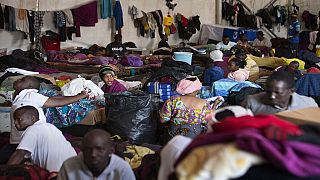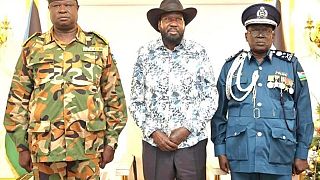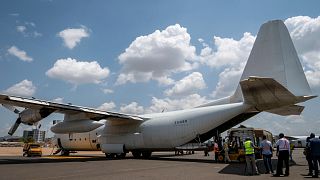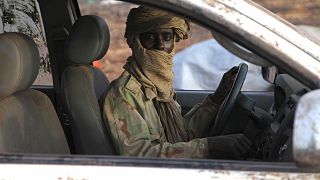South Sudan
If the wet season officially begins in May in South Sudan, the country hasn’t completely dealt with the consequences of its 2021 record floods.
Angelina Peter, like many climate refugee cannot forget the day she had to flee because of flooding. "Our villages were totally submerged in water. We arrived here with nothing. All our property was washed away. This is the 2nd time it's flooding in 2 years. In 2020 it was not too bad because we built dikes."
Even if the population does its best to protect crops, villages and livestock, help is urgently needed for the most vulnerable among the 835,000 people hit by flooding. Some experts believe climate change is to blame, as it drives more frequent and intense weather. In the field, the UN's Refugee Agency supports community actions.
"We're looking at communities struggling to resist the impact of climate change and extreme weather events we need to advocate for development actors to provide support directly to the communities, Andrew Harper, UNHCR special advisor to high commissioner on climate action says. These flood waters have been here for 2 to 3 years and they're not going down . What happens when we see the next rains coming in the next 2 or 3 months?"
Record rainfall in the past three years in the Upper Nile region and flooding from upstream in other countries, have drowned lands and worsened food security











01:10
Young South Sudanese player selected for NBA basketball team
01:06
South Africa declares state of disaster following severe weather
01:36
CO2 emissions on track to push Earth beyond 1.5 degree threshold by 2028, report finds.
01:41
UN warns of looming famine in Sudan, Gaza and 3 other global hunger hotspots
01:55
South African president visits flood sites with death toll at 78
00:24
Greenland and Iceland saw record heat in May